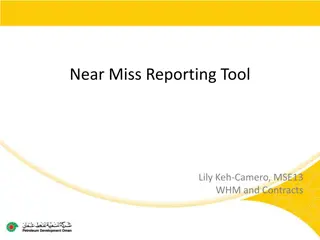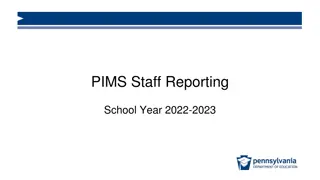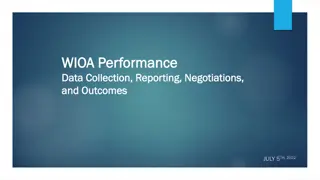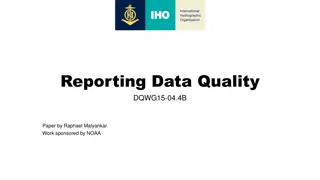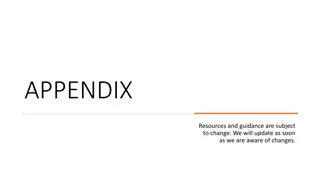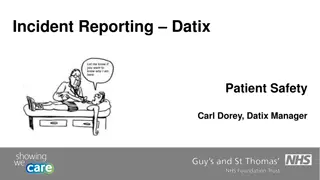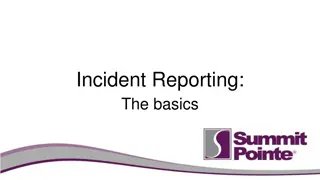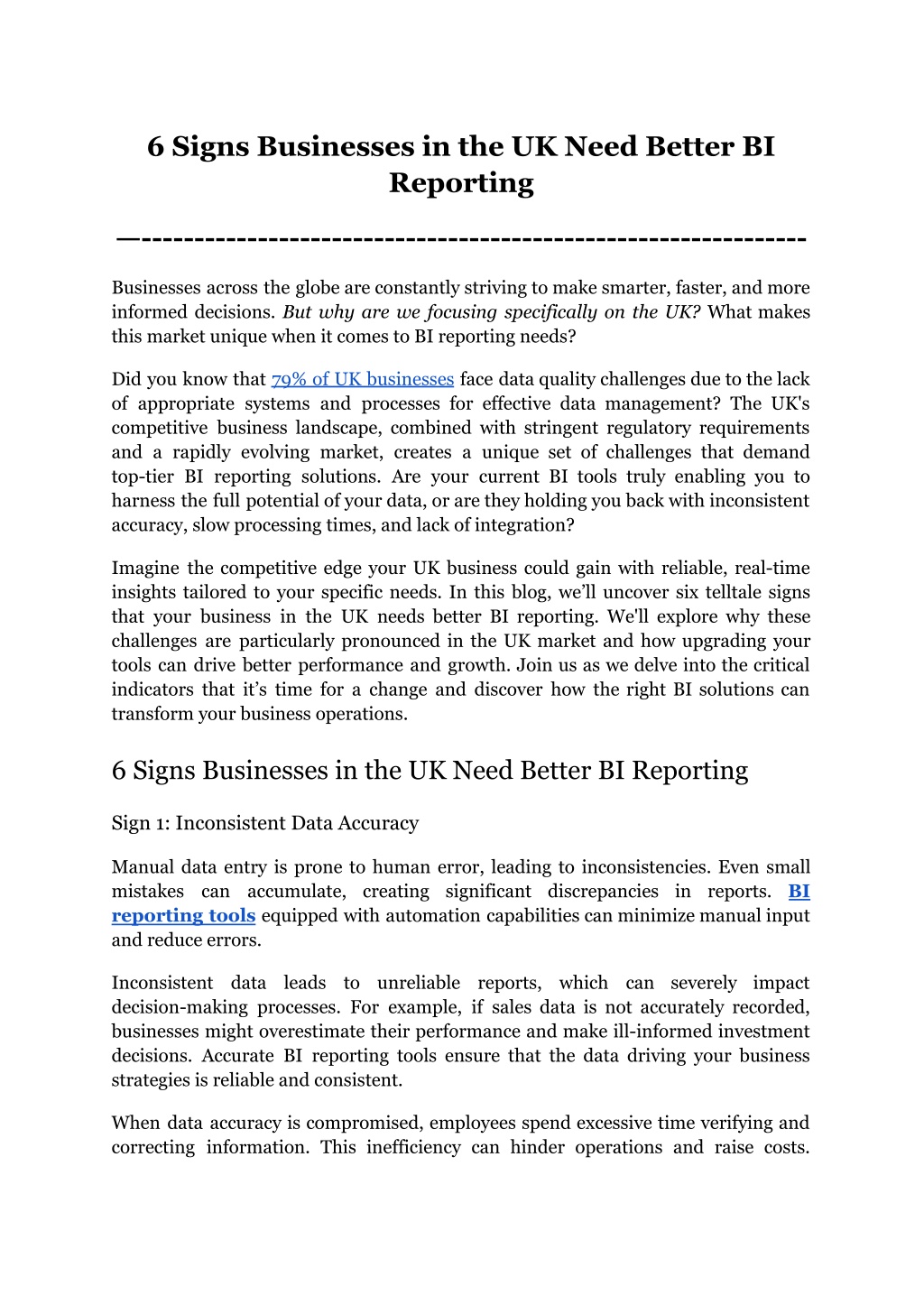
6 Signs Businesses in the UK Need Better BI Reporting
Struggling with outdated BI tools in the UK? Discover the top 6 signs your business needs a BI upgrade, from data inaccuracies to slow decision-making. Learn how better BI reporting can enhance data integration, customization, user engagement, and scalability, driving your business's growth and efficiency.
Download Presentation

Please find below an Image/Link to download the presentation.
The content on the website is provided AS IS for your information and personal use only. It may not be sold, licensed, or shared on other websites without obtaining consent from the author. Download presentation by click this link. If you encounter any issues during the download, it is possible that the publisher has removed the file from their server.
E N D
Presentation Transcript
6 Signs Businesses in the UK Need Better BI Reporting --------------------------------------------------------------- Businesses across the globe are constantly striving to make smarter, faster, and more informed decisions. But why are we focusing specifically on the UK? What makes this market unique when it comes to BI reporting needs? Did you know that 79% of UK businesses face data quality challenges due to the lack of appropriate systems and processes for effective data management? The UK's competitive business landscape, combined with stringent regulatory requirements and a rapidly evolving market, creates a unique set of challenges that demand top-tier BI reporting solutions. Are your current BI tools truly enabling you to harness the full potential of your data, or are they holding you back with inconsistent accuracy, slow processing times, and lack of integration? Imagine the competitive edge your UK business could gain with reliable, real-time insights tailored to your specific needs. In this blog, we ll uncover six telltale signs that your business in the UK needs better BI reporting. We'll explore why these challenges are particularly pronounced in the UK market and how upgrading your tools can drive better performance and growth. Join us as we delve into the critical indicators that it s time for a change and discover how the right BI solutions can transform your business operations. 6 Signs Businesses in the UK Need Better BI Reporting Sign 1: Inconsistent Data Accuracy Manual data entry is prone to human error, leading to inconsistencies. Even small mistakes can accumulate, creating significant discrepancies in reports. BI reporting tools equipped with automation capabilities can minimize manual input and reduce errors. Inconsistent decision-making processes. For example, if sales data is not accurately recorded, businesses might overestimate their performance and make ill-informed investment decisions. Accurate BI reporting tools ensure that the data driving your business strategies is reliable and consistent. data leads to unreliable reports, which can severely impact When data accuracy is compromised, employees spend excessive time verifying and correcting information. This inefficiency can hinder operations and raise costs.
Implementing robust BI reporting tools can streamline data management processes, freeing up resources for more strategic tasks. Top-tier BI reporting tools include features such as real-time data processing and customizable reporting that help maintain compliance with UK regulations and offer robust security measures to protect sensitive data. Ensuring compliance and security means your business remains both compliant and secure, protecting against potential legal and financial risks. Inconsistent data accuracy is a significant red flag that your business in the UK needs better BI reporting. The right BI reporting tools can transform how you handle data, ensuring accuracy, compliance, and operational efficiency. Sign 2: Slow Decision-Making Processes Slow decision-making processes can significantly hamper a company's ability to respond to market changes, customer needs, and internal challenges. One of the primary culprits of sluggish decision-making is the lack of efficient BI reporting. Without the right BI reporting tools, businesses often face delays in accessing and analyzing critical data, leading to missed opportunities and decreased performance. Moreover, decision-making processes. When data is scattered across different departments and systems, it becomes challenging to compile a comprehensive view of the business. This fragmentation leads to time-consuming data reconciliation efforts, further delaying critical decisions. BI reporting tools that integrate data from various sources into a unified platform can significantly speed up the decision-making process. These tools provide a single source of truth, ensuring that all stakeholders have access to the most accurate and up-to-date information. businesses with siloed data systems often experience slower In the UK, businesses face unique regulatory and market challenges that require agile and responsive decision-making. For instance, regulatory changes may necessitate quick adjustments in business operations to remain compliant. Slow decision-making owing to inefficient BI reporting might lead to non-compliance and penalties.Therefore, investing in a modern BI reporting tool for the UK market can help businesses stay ahead of regulatory requirements and avoid costly fines. Sign 3: Lack of Integration with Other Systems Without integration data remains siloed within different departments and systems, reconciling these disparate data sources becomes a time-consuming and error-prone task. BI reporting tools designed for the UK market can address this issue by providing seamless integration with a wide range of business systems, ensuring that all data is consolidated into a single, accessible platform. 2
The lack of integration with other systems can lead to duplicated efforts and increased operational costs. When data is not integrated, different departments may independently collect and process the same information, leading to redundancy and inefficiency. This duplication not only wastes valuable resources but also increases the risk of inconsistencies and errors in the data. BI reporting tools that integrate seamlessly with other systems eliminate these redundancies, streamlining operations and reducing costs. By automating data collection and consolidation, these tools ensure that all departments work from a single, accurate source of truth. Furthermore, departments. When all stakeholders have access to the same integrated data, it fosters a collaborative environment where insights and strategies can be shared easily. This collaboration is particularly important in the UK, where businesses often operate across multiple locations and time zones. Integrated BI reporting tools enable teams to work together more effectively, leveraging shared data to drive better business outcomes. integrated BI reporting tools enhance collaboration across Sign 4: Inadequate Customization and Flexibility For UK businesses, the lack of customization and flexibility in their BI reporting tools can lead to suboptimal performance, inefficient operations, and lost opportunities. This critical issue underscores the need for advanced BI reporting solutions that cater specifically to the dynamic needs of modern businesses. One major problem with inadequate customization in BI reporting tools is that they often force businesses into a rigid framework that doesn't align with their specific operational needs. For example, a healthcare provider in the UK might require customized reports to track patient outcomes, manage resource allocation, and ensure regulatory compliance. Standard BI reporting tools without customization capabilities can limit their ability to obtain these specific insights, leading to inefficiencies and potential compliance issues. Advanced BI reporting tools, on the other hand, offer customizable dashboards and reporting options that can be tailored to the unique requirements of any industry, providing actionable insights that drive better decision-making. Flexibility is equally crucial for BI reporting tools. As businesses grow and evolve, their data needs and reporting requirements change. A retail business that starts with basic sales tracking might eventually need to integrate more complex metrics like customer lifetime value, regional sales comparisons, and inventory turnover rates. Without flexible BI reporting tools, these evolving needs can be challenging to meet, resulting in outdated and irrelevant reports. BI reporting tools UK businesses utilize must be capable of adapting to these changing requirements, ensuring that they continue to provide valuable insights as the business scales and diversifies. Sign 5: Poor User Adoption and Engagement 3
Poor user adoption of BI reporting tools can lead to a host of issues, including underutilized technology investments, inefficient decision-making processes, and ultimately, lost competitive advantage. Understanding why poor user adoption and engagement occur and addressing these challenges with the right BI reporting tools is essential for driving business success. One of the primary reasons for poor user adoption is the complexity and unintuitive nature of many BI reporting tools. When tools are difficult to navigate or require extensive training, users are less likely to fully embrace them. This issue is particularly acute in diverse and dynamic business environments like the UK, where employees may have varying levels of technical proficiency. If a BI reporting tool is cumbersome, employees might revert to manual processes or simpler tools, leading to fragmented and inconsistent data insights. To combat this, businesses need BI reporting tools that prioritize user-friendly interfaces and seamless user experiences, making it easier for all employees to adopt and engage with the system effectively. Moreover, the lack of proper training and support can significantly hinder user engagement with BI reporting tools. Even the most advanced BI reporting tools will fall short if users do not understand how to leverage their full capabilities. UK businesses must ensure that their chosen comprehensive training programs and ongoing support. This can include in-person training sessions, online tutorials, and responsive customer service. By empowering users with the knowledge and confidence to utilize BI reporting tools effectively, businesses can enhance user engagement and maximize the value derived from their BI investments. BI reporting tools come with Another critical factor contributing to poor user adoption is the perceived lack of relevance or value in the reports generated by BI tools. If the insights provided do not directly support users roles or decision-making processes, engagement will naturally decline. For example, a marketing team might find little value in detailed financial metrics, while a finance team might not need granular customer data. BI reporting tools UK businesses rely on should offer customizable reporting options that cater to the specific needs of different departments and roles. By delivering relevant, role-specific insights, these tools can drive higher user engagement and more meaningful data utilization across the organization. The organizational culture towards data and technology also impacts user engagement with BI reporting tools. decision-making is not deeply embedded in the culture, users might be less inclined to engage with BI tools. Leaders in UK businesses must champion the use of BI reporting tools, demonstrating their value through data-driven successes and encouraging a culture that prioritizes informed decision-making. By fostering an environment that values and relies on data, businesses can improve user adoption and engagement with BI reporting tools. In companies where data-driven 4
Sign 6: Inability to Scale with Business Growth As UK firms seek to expand, the capacity to efficiently scale operations becomes increasingly crucial. However, an often-overlooked factor in scaling is the capability of BI reporting tools to grow alongside the business. When BI reporting tools fail to scale with business growth, it can lead to numerous challenges, including data bottlenecks, inefficient decision-making processes, and ultimately, stunted business development. Recognizing this issue is essential for companies that aim to maintain their competitive edge and drive sustained growth. BI reporting tools that are not designed for scalability struggle to keep up with this influx, leading to slow report generation, incomplete data analysis, and missed insights. For example, a growing e-commerce company in the UK might see a surge in transaction data during peak seasons. If their BI reporting tools cannot efficiently manage this data, it hampers the company s ability to analyze sales trends, manage inventory, and make informed strategic decisions. Moreover, scalability issues in BI reporting tools often manifest as performance bottlenecks. As the number of users and data queries increases, tools that are not built to scale may experience slowdowns and crashes. This is particularly problematic for businesses in the UK where timely decision-making is critical. For instance, financial firms require real-time data processing to make quick investment decisions. If their BI reporting tools lag or fail during high demand, it can result in significant financial losses. BI reporting tools designed with robust scalability features ensure that no matter how many users access the system or how complex the queries become, performance remains optimal. Non-scalable BI reporting tools often lack the flexibility to adapt to the changing business requirements, forcing businesses to work within rigid frameworks that no longer serve their purposes. In addition, the cost implications of non-scalable BI reporting tools can be significant. Initially, these tools might seem cost-effective, but as the business grows, the need for additional licenses, upgrades, and workarounds can lead to escalating costs. Conversely, investing in scalable BI reporting tools from the outset can result in long-term cost savings. These tools are designed to grow with the business, eliminating the need for frequent upgrades and reducing the total cost of ownership. BI reporting tools UK businesses choose should be those that offer a clear path for scalability, ensuring sustainable growth without unexpected expenses. Conclusion Identifying and addressing the signs that your business in the UK needs better BI reporting is crucial for maintaining a competitive edge and ensuring efficient operations. Whether you're grappling with inconsistent data accuracy, slow 5
decision-making processes, lack of integration with other systems, inadequate customization and flexibility, poor user adoption and engagement, or an inability to scale with business growth, upgrading to a robust BI reporting tool can transform your business. Grow BI reporting tools are designed to tackle these challenges head-on, providing UK businesses with accurate, real-time insights, seamless integration capabilities, extensive customization options, and the scalability needed for sustained growth. By investing in Grow, you can empower your team with the data they need to make informed decisions, streamline operations, and drive your business forward. Don't just take our word for it experience the power of Grow for yourself. Start your free 14-day demo today and see how our BI reporting tools can revolutionize your business. For more information on Grow s features, costs, and user reviews, visit "Grow Reviews Cost & Features GetApp." Transform your business with better BI reporting choose Grow and see the difference it makes. 6



























